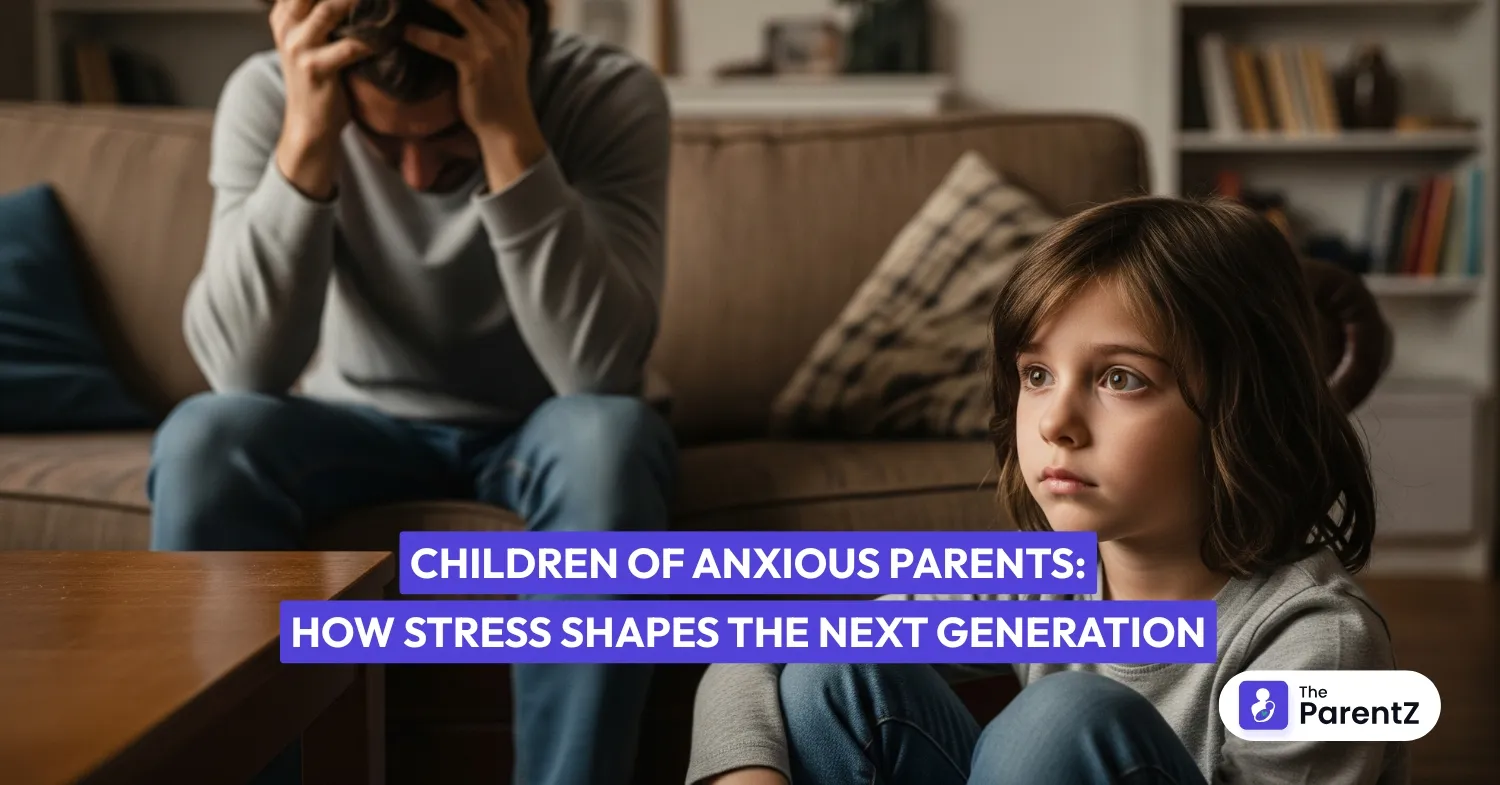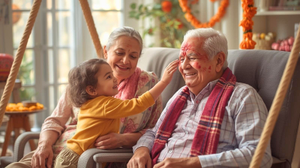You're lying in bed at 2 AM, mind racing about tomorrow's parent-teacher conference. Your chest feels tight. Your thoughts jump from your child's math grades to whether you're failing as a parent.
If you're reading this, chances are you know what it feels like to carry anxiety into your parenting. Maybe it started before you had kids, or maybe parenthood itself triggered it. Either way, you're not alone, and you're not broken.
When Your Anxiety Becomes Their Normal
Here's what nobody tells you about being an anxious parent: your kids don't just see your worry; they absorb it. They learn it. They make it their own.
Think about yesterday. Did you check on your sleeping child three times because you needed that reassurance? Did you ask, "Are you okay?" when they seemed quiet for five minutes? Did you feel your heart race when they were ten minutes late coming home from school?
Your child noticed. Not because they're judging you, but because children are like emotional sponges. They pick up on the energy in the room, the tension in your voice, the way you hold your shoulders when you're worried.
The Invisible Lessons We Teach
When you constantly check if doors are locked, your child learns that the world is unsafe. When you ask "What if something happens?" out loud, they start asking it too. When you apologize repeatedly for small mistakes, they learn that perfection is the only acceptable standard.
This isn't about blame. This is about understanding.
Your anxiety often comes from love, fierce, protective love that wants to shield your child from every possible hurt. But here's the hard truth: when we try to control everything around our children, we teach them that they can't handle uncertainty. When we model constant worry, we show them that this is how you go through life.
The Weight You Carry Alone
Let's talk about what's really happening inside you. You wake up already thinking about potential disasters. Did you pack the right snacks? What if your child gets hurt at recess? What if they don't make friends? What if you're not doing enough?
The mental load is crushing. You research everything twice, plan for scenarios that might never happen, and second-guess every parenting decision. You see other parents who seem so calm, so confident, and you wonder what's wrong with you.
Nothing is wrong with you. Anxiety is not a character flaw. It's not a weakness. It's your brain trying to protect what matters most to you.
How Stress Rewires Young Minds
But here's what anxiety does to developing brains: it teaches them to expect danger. Your child's nervous system learns to stay alert, to scan for problems, to worry about things that haven't happened yet.
They might become perfectionists who melt down over small mistakes. They might avoid trying new things because failure feels catastrophic. They might develop their own anxiety symptoms, like stomach aches before school, trouble sleeping, and a constant need for reassurance.
This happens because children's brains are still forming. The patterns they learn early become their default ways of thinking and feeling.
The Ripple Effect Through Generations
Your anxiety didn't appear in a vacuum. Maybe your own parents were worriers. Maybe you grew up in a house where anxiety was the background soundtrack. Now you're unintentionally passing similar patterns to your children.
This isn't your fault. You're doing the best you can with the tools you have. But recognizing this pattern is the first step toward changing it.
Breaking the Cycle Without Breaking Yourself
You don't need to become a different person to help your child. You need to become aware of your anxiety and learn to manage it differently.
- Start small: When you feel the urge to check on your child for the third time, pause. Take a breath. Ask yourself: "Is this about real danger or my anxiety talking?"
- Share age-appropriate truths: Instead of hiding your worries completely, you can say: "I felt worried about that, but I reminded myself that you're capable and safe."
- Model coping, not perfection: Let your child see you take deep breaths when you're stressed. Show them that it's okay to feel anxious and that you have ways to handle those feelings.
The Love Behind the Worry
Your anxiety comes from the deepest love. You would do anything to protect your child, including torturing yourself with worst-case scenarios. But the greatest protection you can offer isn't constant vigilance; it's teaching them that they can handle life's uncertainties.
When you learn to sit with your own discomfort without immediately reacting, you teach your child that uncomfortable feelings are temporary and manageable. When you model self-compassion instead of harsh self-criticism, you show them how to treat themselves kindly.
Your healing becomes their healing. Your growth becomes their foundation for resilience.
Conclusion
You're not a bad parent because you feel anxious. You're a human being trying to raise another human being in an uncertain world. That's brave, not broken. And recognizing how your anxiety affects your child? That's the first step toward raising a generation that can face uncertainty with courage instead of constant fear.





Be the first one to comment on this story.